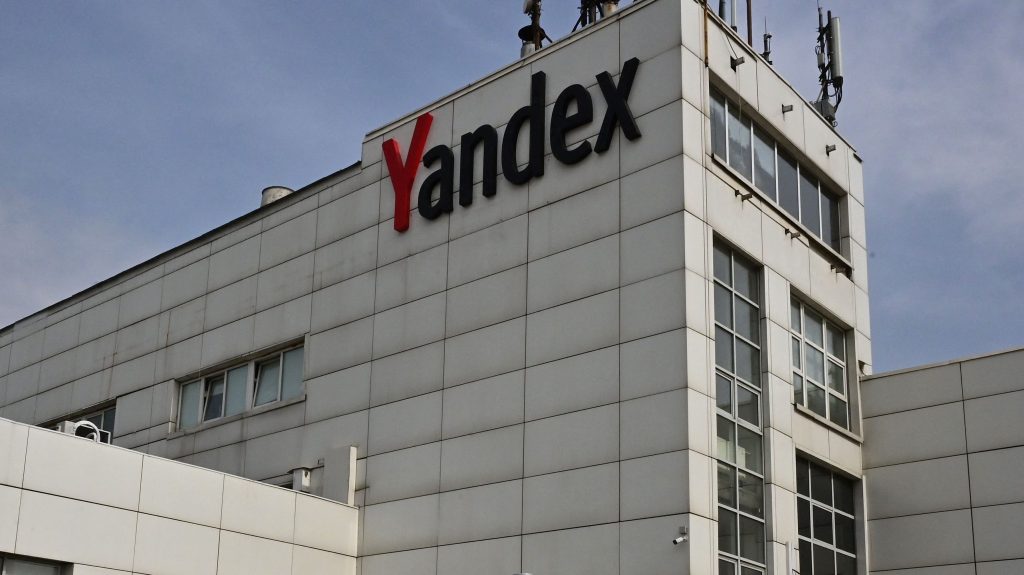
Yandex N.V., the Dutch parent company of the eponymous Russian internet giant, is selling the last of its remaining Russian businesses at a steep discount, following geopolitical pressures that emerged from Russia’s invasion of Ukraine two years ago.
The value of the transaction, which will include the sale of all Yandex N.V. businesses in Russia and a handful of neighboring markets, will amount to around 475 billion rubles ($5.2 billion) — roughly half of its market capitalization as per the average share price in the three months ending January 31, 2024. The reason for this markdown is due to a rule imposed by the Russian Government, which stipulates that any sale of Russian assets by parent companies incorporated in countries deemed “unfriendly” by Russia, will be subject to a “mandatory discount” of at least 50 percent. And the Netherlands, as a member of an EU bloc that has imposed sanctions on Russia, falls into that “unfriendly” category.
“Google of Russia”
For context, Yandex was founded way back in 1997 and eventually became known as “The Google of Russia,” given that it sold products broadly similar to its U.S. counterpart including search, e-commerce, advertising, maps, transportation and more. But while Yandex’s primary market was Russia, the company went public on the Nasdaq in 2011 via a holding company called Yandex N.V. registered in the Netherlands, followed by a secondary listing three years later on the Moscow Exchange.
Yandex had been performing well as a public company, hitting a peak market cap of $31 billion in November, 2021. However, in the months that followed, Yandex’s shares nosedived as Russia invaded neighboring Ukraine, with the Nasdaq putting a temporary halt on trading before delisting Yandex (alongside several other Russian-affiliated companies) last March.
Fast-forward to today, and it’s not much of a surprise that Yandex N.V. — the parent holding company — is now offloading all remaining assets linked to Russia. Indeed, many Western companies suspended operations in Russia due to sanctions, and Yandex CEO and founder Arkady Volozh was forced out of the company after he was placed on a list of sanctions issued by the European Union.
Subsequently, Yandex has already been divesting some of its properties, including selling its news service to a rival with close ties to the Russian State, and the company announced plans for a corporate restructuring to further distance itself from its Russian roots. Yandex had also said previously that it would re-brand its Dutch holding company, though this had yet to happen — but once this deal concludes, Yandex N.V. has confirmed that it will no longer use the Yandex brand, as that will be kept by the new Russian owners.
“We expect that our international businesses will develop their own branding going forward,” Yandex wrote in a press release. “We intend to seek shareholder approval to change the legal name of YNV in due course.”
Consortium
Breaking down the terms of the transaction, Yandex N.V. will be paid “at least” 230 billion rubles ($2.5 billion) in cash, which will be paid in Chinese Yuan (CNH) — presumably because the buyers, who are all Russia-based, aren’t able to transact in dollars or euros.
In terms of who the buyers are, well, Yandex says it will be a consortium led by senior managers from Yandex’s Russian businesses, who will provide some of the acquisition capital via a special purpose limited liability company called “FMP.” Other investors include an entity called Argonaut, which Yandex says is a closed-end mutual investment combined fund owned by Russian oil company PJSC Lukoil; “Infinity Management,” a special purpose joint stock company owned by venture capitalist and entrepreneur Alexander Chachava; “IT.Elaboration,” a special purpose joint stock company owned by Pavel Prass, CEO of investment manager Infinitum Asset Services; and “Meridian-Servis,” a special purpose limited liability company owned by businessman and former politician Alexander Ryazanov.
Notably, the businesses that Yandex N.V. is selling represent “more than 95%” of the Yandex Group’s revenues for the first nine months of 2023, and roughly the same portion of its entire assets and employee headcount. Put simply, Yandex N.V. will be a much trimmer outfit once this transaction closes — its remaining “non-Russian assets,” as it puts it, will include four early-stage technology businesses. These include an autonomous vehicle company called Avride; an AI cloud platform called Nebius AI; a generative AI and LLM company called Toloka AI; and edtech platform TripleTen.
Elsewhere, Yandex N.V. will also retain ownership of a data center in Finland, plus some other investments in various technology companies.
The deal, which is still subject to regulatory and shareholder approval, is touted to close in two stages — the first part will see Yandex N.V. sell a 68 percent stake of the Russian businesses within the first half of 2024 in a mixture of cash and shares in the Dutch entity. The second part is expected to close within seven weeks of that first stage closing.
The company says that it plans to use a chunk of its cash proceeds from the sale to further develop its remaining businesses, and deliver a return to its shareholders.
“Since February 2022, the Yandex group and our team have faced exceptional challenges. We believe that we have found the best possible solution for our shareholders, our teams and our users in these extraordinary circumstances,” said Yandex N.V. chairman John Boynton in a press release. “The proposed transaction will allow shareholders to recover some value for the businesses that we are divesting, while unlocking new growth potential for the international businesses we will retain and enabling the divested businesses to operate under new ownership.”
